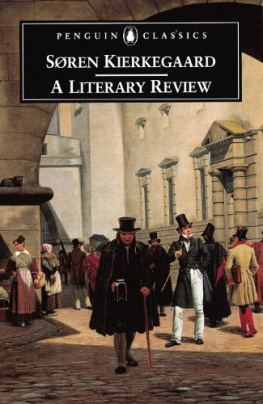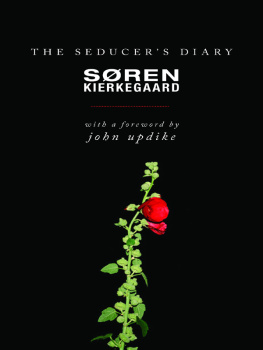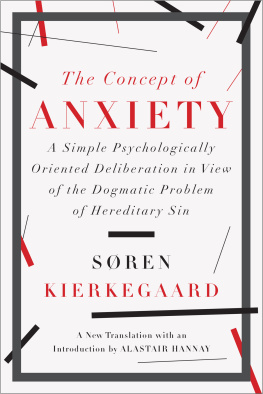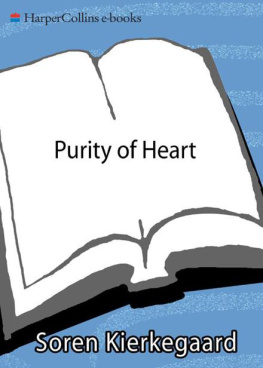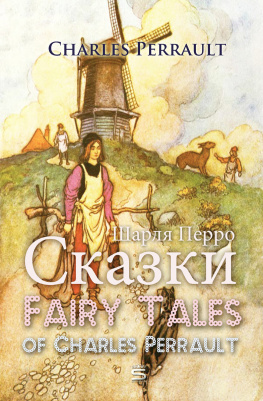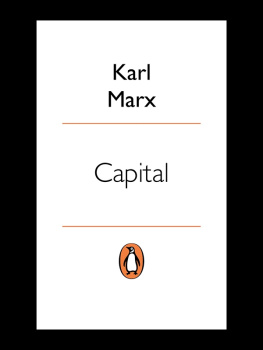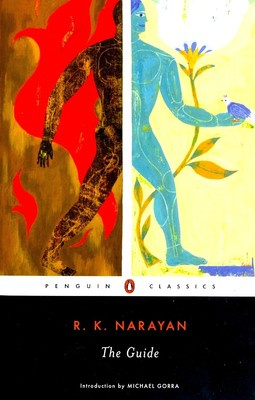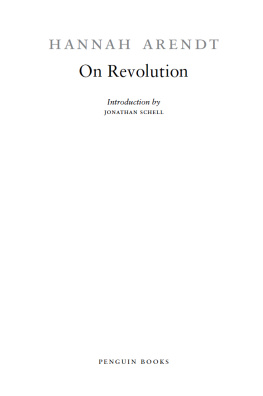SREN AABYE KIERKEGAARD was born in Copenhagen in 1813, the youngest of seven children. His mother, his sisters and two of his brothers all died before he reached his twenty-first birthday. Kierkegaards childhood was an isolated and unhappy one, clouded by the religious fervour of his father. He was educated at the School of Civic Virtue and went on to enter the university, where he read theology but also studied the liberal arts and science. In all, he spent seven years as a student, gaining a reputation both for his academic brilliance and for his extravagant social life. Towards the end of his university career he started to criticize the Christianity upheld by his father and to look for a new set of values. In 1841 he broke off his engagement to Regine Olsen and devoted himself to his writing. During the next ten years he produced a flood of discourses and no fewer than twelve major philosophical essays, many of them written under noms de plume. Notable are Either/Or (1843), Repetition (1843), Fear and Trembling (1843), Philosophical Fragments (1844), The Concept of Anxiety (1844), Stages on Lifes Way (1845), Concluding Unscientific Postscript (1846) and The Sickness unto Death (1849). By the end of his life Kierkegaard had become an object of public ridicule and scorn, partly because of a feud that he had provoked in 1846 with the satirical Danish weekly The Corsair, partly because of his attacks on the Danish State Church. Few mourned his death in November 1855, but during the early twentieth century his work enjoyed increasing acclaim and he has done much to inspire both modern Protestant theology and existentialism. Today Kierkegaard is attracting increasing attention from philosophers and writers inside and outside the postmodern tradition.
ALASTAIR HANNAY was born to Scottish parents in Plymouth, Devon, in 1932 and educated at the Edinburgh Academy, the University of Edinburgh and University College London. In 1961 he became a resident of Norway, where he is now Emeritus Professor of Philosophy at the University of Oslo. A Fellow of the Royal Society of Edinburgh, he has been a frequent visiting professor at the University of California, at San Diego and at Berkeley. Alastair Hannay has also translated Kierkegaards Fear and Trembling, The Sickness unto Death, Either/Or and Papers andJournals for Penguin Classics. His other publications include Mental Images A Defence, Kierkegaard (Arguments of the Philosophers), Human Consciousness and Kierkegaard: A Biography, as well as articles on diverse themes in philosophical collections and journals. He is the editor of Inquiry.
FURTHER READING
For some useful literature in connection with A Literary Review, see the collection of essays devoted to A Literary Review in N. J. Cappelrn and H. Deuser (eds), Kierkegaard Studies: Yearbook 1999 (Walter de Gruyter, Berlin and New York, 1999); H. L. Dreyfus and J. Rubin, Kierkegaard on the Nihilism of the Present Age: The Case of Commitment as Addiction, Synthese 98/1 (January 1994), pp. 319; H. Fenger, The Heibergs, trans. F. J. Marker, Twayne World Authors Series (Twayne Publishers, New York, 1971); A. Hannay, Kierkegaards Present Age and Ours, in M. Wrathall and J. Malpas (eds), Heidegger, Authenticity and Modernity: Essays in Honor of Hubert L. Dreyfus, vol. 1 (MIT Press, Cambridge, Mass., 2000), pp. 10522, notes pp. 3546; G. Kjr, Thomasine Gyllembourg, Author of A Story for Everyday Life, in R. L. Perkins (ed.), International Kierkegaard Commentary: Early Polemical Writings (Mercer University Press, Macon, Ga., 1999), pp. 87108; and G. Pattison, Poor Paris!: Kierkegaards Critique of the Spectacular City, Kierkegaard Studies: Monograph Series 2, ed. N. J. Cappelrn and C. Tolstrup (Walter de Gruyter, Berlin and New York, 1999).
For a comprehensive view of the wider background to Kierkegaards writings in the context of his contemporaries, see B. H. Kirmmse, Kierkegaard in Golden Age Denmark (Indiana University Press, Bloomington and Indianapolis, 1990).
For general surveys of Kierkegaards works and essays relating them to more recent thought, see A. Hannay and G. D. Marino (eds), The Cambridge Companion to Kierkegaard (Cambridge University Press, Cambridge, 1998); M. J. Matustik and M. Westphal (eds), Kierkegaard in Post-Modernity (Indiana University Press, Bloomington and Indianapolis, 1995); and J. Re and J. Chamberlain (eds), Kierkegaard: A Critical Reader (Blackwell, Oxford, 1998).
For biographies see A. Hannay, Kierkegaard: A Biography (Cambridge University Press, Cambridge, 2001); W. Lowrie, Kierkegaard (Oxford University Press, London, New York and Toronto, 1938); and J. Thomson, Kierkegaard (Alfred A. Knopf, New York, 1973). For valuable biographical background material, see B. H. Kirmmse (ed.), Encounters with Kierkegaard: A Life as Seen by His Contemporaries, trans. B. H. Kirmmse and V. R. Laursen (Princeton University Press, Princeton, NJ, 1996).
I Prospectus of the Contents of Both Parts
Part One: The Age of Revolution
In the Copenhagen merchant Wallers home the arrival in the city of the French legation, and the reception into his family of these envoys along with other Frenchmen, was epoch-making. Waller and the lawyer Dalund. What the arbour and pastoral tranquillity do for the birth of innocent, or at least of forgivably errant, love, the distraction of great events does for the persistence of the forbidden love.
Finally, also visiting the Waller home is a young girl, Claudine, daughter of the merchants sister. And among the Frenchmen there is one, Charles Lusard, in whom the young girl, brought up in virtual oppression by her aunt Malfred, soon finds an object for her now unfettered adoration. A banquet at the merchants provides the high point of the political celebrations in the Waller home, and the beginning of an intimate understanding between Claudine and Lusard.
Although Part One of the novel is entitled The Age of Revolution, attention is now decisively focused on Claudine, so that the main motif seems forgotten unless it is remembered that C. precisely falls victim to the Idea of her age (), but is also restored in that Claudine is the one who better than any remained true to that Idea (p. 159). Thus the intriguing and yet so modestly chosen subject comes to light, the revolutionary ages life reflected in domestic life yes, the age of revolution reflected in a poor, abandoned womans hidden seclusion deep in the country.
Lusard gets into a duel; wounded, he is brought in a fishing boat to the Waller country house where, in the most agonizing suspense, Claudine has suffered and continues to suffer all the terrors of a secret love affair, but is also maturing in the special inwardness of enamourment. L. stays on at the Waller country house, where he recovers; but, also, there in the rural quiet the understanding between him and Claudine reaches its climax, favoured by the situation and guided, as it were, by Ferdinand W.s report of an illicit relationship between Madame W. and Dalund, as well as by his amplifications on the ages frivolous views about marriage.
Lusard goes off to the army leaving Claudine behind in the situation prophetically foretold by Ferdinand: that the memory of this should be enough to fill the life of a woman who knew how to love and appreciate what is glorious (), a prophecy which in general may be untrue of any or, if true, only of the uncommon girl.

